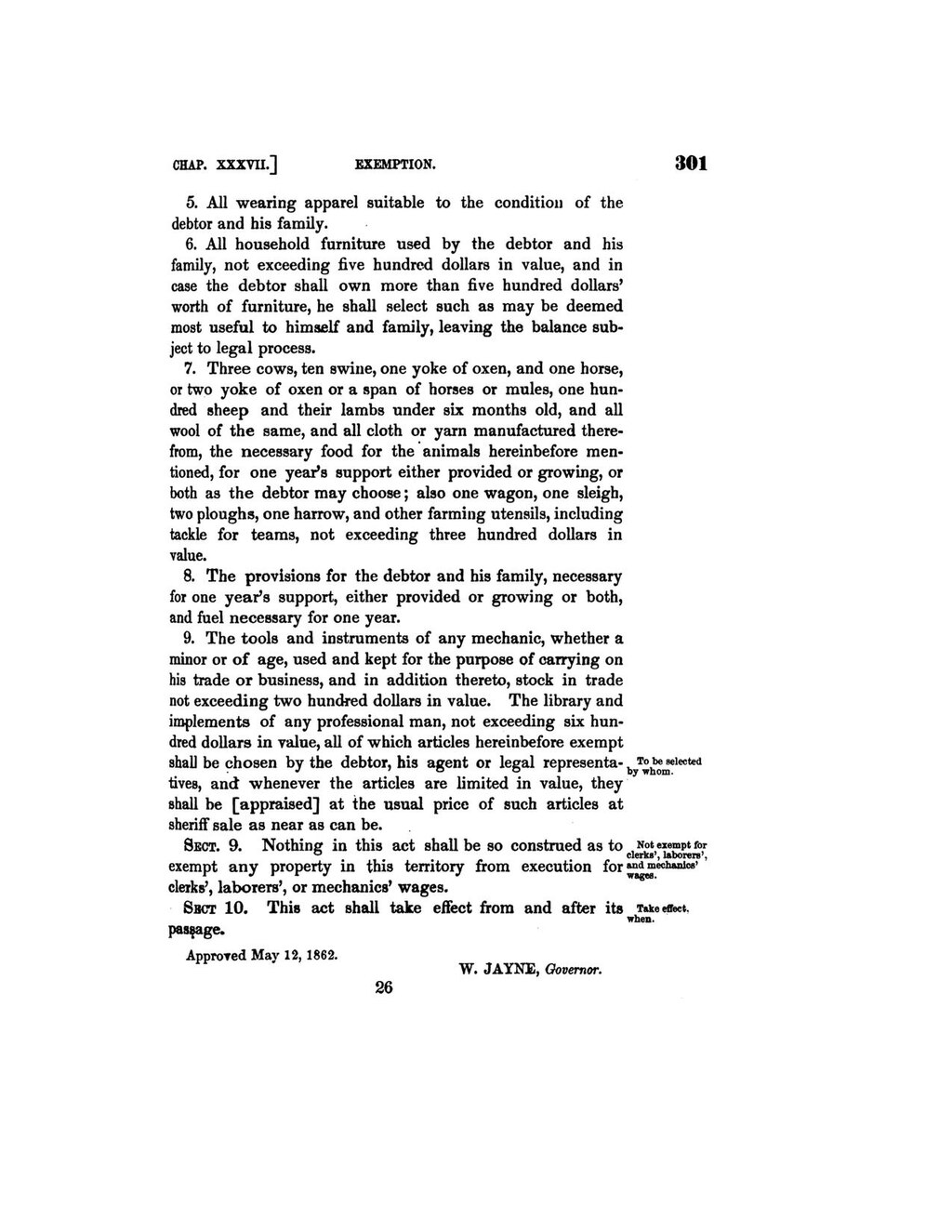5. All wearing apparel suitable to the condition of the debtor and his family.
6. All household furniture used by the debtor and his family, not exceeding five hundred dollars in value, and in case the debtor shall own more than five hundred dollars' worth of furniture, he shall select such as may be deemed most useful to himself and family, leaving the balance subject to legal process.
7. Three cows, ten swine, one yoke of oxen, and one horse, or two yoke of oxen or a span of horses or mules, one hundred sheep and their lambs under six months old, and all wool of the same, and cloth or yarn manufactured herefrom, the necessary food for the animals hereinbefore mentioned, for one year's support either provided or growing, or both as the debtor may choose; also one wagon, one sleigh, two ploughs, one harrow, and other farming utensils, including tackle for teams, not exceeding three hundred dollars in value.
8. The provisions for the debtor and his family, necessary for one year's support, either provided or growing or both, and fuel necessary for one year.
9. The tools and instruments of any mechanic, whether a minor or of age, used and kept for the purpose of carrying on his trade or business, and in addition thereto, stock in trade not exceeding two hundred dollars in value. The library and implements of any professional man, not exceeding six hundred dollars in value, all of which articles hereinbefore exempt shall be chosen by the debtor, his agent or legal representatives, and whenever the articles are limited in value, they shall be (appraised] at the usual price of such articles at sheriff sale as near as can be.
Sect. 9. Nothing in this act shall be so construed as to exempt any property in this territory from execution for clerks', laborers', or mechanics' wages.
Sect. 10. This act shall take effect from and after its passage.
- Approved May 12, 1862.
